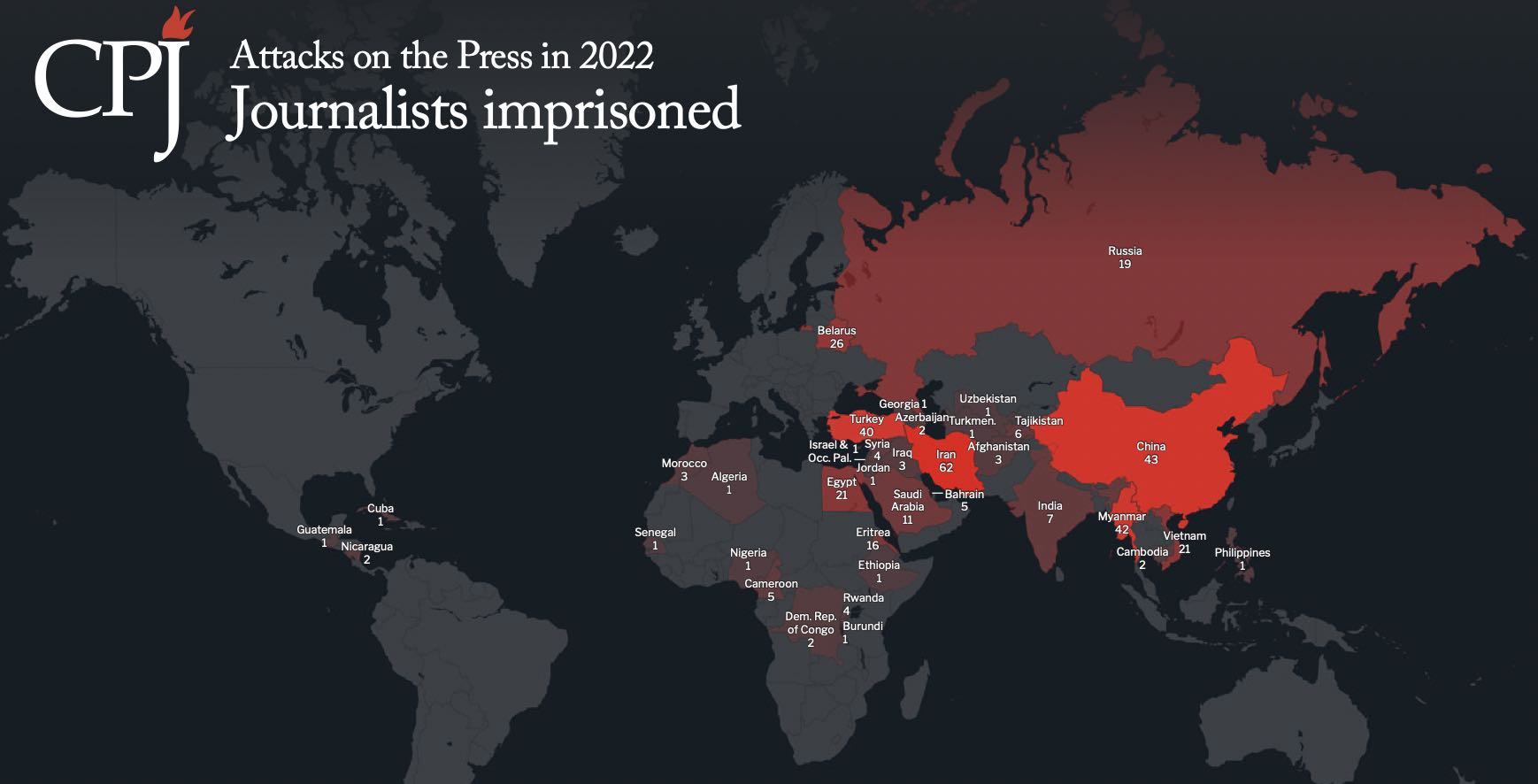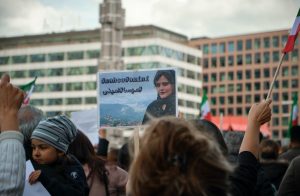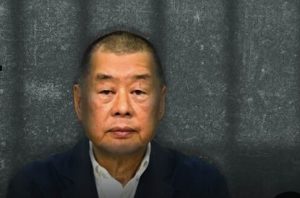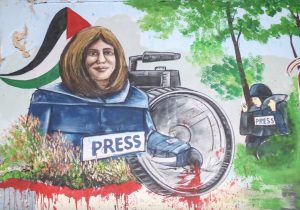London – According to the International Federation of Journalists, the number of journalists arrested broke an all-time record in a year when the loss of professional press workers rose again with one death every five days.
The data comes from the Federation itself, which counts 375 detainees, and the censuses released this week by the Committee to Protect Journalists (CPJ) and Reporters Without Borders.
Figures vary according to each agency’s criteria and may or may not include prisons confirmed to be related to business and citizen journalists or journalistic support staff.
CPJ lists 363 professionals deprived of their liberty as of December 1; this number does not include those released or temporarily detained during the year and represents a 20% increase over 2022.
The figure is rated by the business as “a bleak milestone in the media disruption scenario”.
The RSF account is higher: it lists 533 people detained for work, 13.4% higher than in 2021, and the increase in women incarcerated: 79.
Even at the lowest number, the situation is alarming. Among the main guards are China, Myanmar and Iran, in order.
CPJ ranked Iran first (49 arrests), while RSF ranked China (110), Myanmar (62) and Iran (47), followed by Belarus and Turkey.

In the country led by Vladimir Putin’s ally, Alexander Lukashenko, 26 journalists were in custody when the census was closed – 19 more than in 2021.
After the arrest of 25 Kurdish journalists in the second half of the year, the number of journalists imprisoned in Turkey increased from 18 in 2021 to 40 in 2022.
Lawyers for the journalists told the Committee that they were all arrested on suspicion of terrorism – as a result of the country’s efforts to silence people it associates with the banned Kurdistan Workers’ Party (PKK).
The organization said China’s strict censorship of the media and the fear of making their voices heard in a country that spies on its people so extensively make it difficult to investigate the exact number of journalists in the prison population.
In this regard, CPJ has reduced the number of media professionals imprisoned in the country from 48 in 2021 to 43 this year.
But he cautions that the reduction “should not be interpreted as alleviating the country’s intolerance towards independent journalism.”
Iran has always been one of the most repressive countries when it comes to journalism, and this year has seen an increase in press freedom violations after mass protests over the death of young Kurdish Mahsa Amini, who was jailed for not wearing a headscarf.
Some professionals risk the death penalty for covering the protests.
Also read | Iran: Journalists reporting Mahsa Amini’s death accused of spying for the US
Journalists imprisoned in countries without democracy
While one of the most notorious cases of jailed journalists is not about dictatorships – that of Julian Assange in the UK, whose extradition request awaits US processing – the press freedom crisis is directly linked to the absence of democracy. in the most oppressive countries.
That’s what Christophe Deloire, Secretary General of Reporters Without Borders, points out.
“Dictatorship and authoritarian regimes are filling their prisons faster than ever before, imprisoning journalists.
This new record in the number of detained journalists reaffirms the need to urgently resist these unscrupulous governments and extend our active solidarity to all who embody the ideal of journalistic freedom, independence and pluralism.
The Committee to Protect Journalists also points to the increasingly repressive efforts by authoritarian governments to suppress the media “by trying to cover up the discontent in a world plagued by Covid-19 and the economic repercussions of Russia’s war against Ukraine.”
A recent example is China, where journalists were arrested while following protests against the restrictive measures implemented in light of the covid-zero policy.
Also read | China detains and attacks foreign correspondents covering the protests in Shanghai; to watch
“Arresting journalists is just one way authoritarian leaders try to stifle press freedom.
Governments around the world are also developing tactics such as “fake news” laws, using criminal defamation and loosely worded laws to criminalize journalism, ignoring the rule of law, abusing the court system, and using technology to spy on reporters and your families. “
Russia and Afghanistan are countries where independent media has been destroyed because reporters have fled into exile or been intimidated by self-censorship.
“Russia’s new restrictive laws aimed at controlling the narrative of its war against Ukraine, including a ban on calling the conflict a war, have dispersed the country’s remaining independent media.
Dozens of Russian journalists escaped imprisonment by escaping into exile. Several of the 19 known detainees in Russia face up to 10 years in prison for spreading “false news”.
And although strategies for repression differ between countries, documented cases share “a common line of official persecution and revenge,” as the Committee describes it.
Some countries, such as China and Saudi Arabia, have a history of arresting journalists even after their sentences have expired.
Others engage in actions that are classified as “insensitive”.
In Vietnam, journalist Pham Doan Trang, serving a nine-year sentence for “propaganda against the state”, was transferred from Hanoi to a remote prison 900 miles from his family – a common tactic to avoid regular visits to the prison. According to the committee’s report.
In addition to prisoners, NGOs count journalists held hostage
Reporters Without Borders’ 2022 survey reports that at least 65 journalists and media workers are held hostage.
One of them is Olivier DuboisFrench reporter detained in Mali for over 20 months by the Al-Qaeda-linked Islam and Muslims Support Group (JNIM).
the other is american Austin Tice She was kidnapped 10 years ago in Syria.
In addition, two more journalists were reported missing in 2022, bringing the total number of journalists whose whereabouts are unknown to 49.
Journalists Imprisoned in Latin America
Latin America stands out in the number of journalists killed, with a statistic provided by Mexico and Haiti, but is not among the regions with the highest number of prisoners.
Nicaragua has two, Cuba has one, and Guatemala has two, according to CPJ. However, the organization stresses that the relatively low number does not reflect the continuing decline in press freedom across the region.
“The year 2022 has been particularly deadly for journalists in Mexico and Haiti, and many countries have passed laws introducing new options to criminalize freedom of expression and journalism.”
According to the Committee, the arrest of José Rubén Zamora in Guatemala was “a chilling revelation to journalists, particularly investigative and independent journalists, ahead of next year’s elections and amid the ongoing crackdown on prosecutors, judges and journalists who have previously brought to light murder cases. is sending a message. corruption”.
Zamora, founder and chairman of elPeriódico, faces charges of money laundering, racketeering and influence trading – seen in retaliation for the newspaper’s report on corruption allegations involving President Alejandro Giammattei and Attorney General Consuelo Porras.
The tool stopped its print edition in December, saying it had to do so after “120 days of political and economic pressure”.
Also read | Guatemala: elPeriódico, whose founder has been arrested since July, shuts down print edition and begins digital restructuring
In Nicaragua, attacks, arrests and threats forced almost all independent journalists in the country to go into exile or lose their jobs.
Lastly resisting harassment from the Daniel Ortega government, La Prensa had to relocate all of her professionals out of the country and saw her headquarters confiscated.
Also read | With headquarters and assets confiscated by the Ortega regime, La Prensa pledges to fight ‘theft’
Arrest of journalists representing minorities
The annual report of the Committee to Protect Journalists highlights another issue: the oppression of minorities.
In Iran, the Kurds bore the brunt of the Iranian government’s retaliation against the protests, and at least nine Kurdish journalists are among those arrested.
In Turkey, authorities arrested 25 Kurdish journalists working for the Mesopotamia News Agency, the women’s news organization JinNews, and others producing content for Kurdish media in Europe.
In Iraq, three journalists named in this year’s census have been imprisoned in Iraqi Kurdistan, according to CPJ.
The committee says most of the journalists imprisoned in China are Uyghurs from Xinjiang, which Beijing has accused of committing crimes against humanity due to its mass arrests and harsh crackdowns on predominantly Muslim ethnic groups in the region.
China: Pressure on journalism also in Hong Kong
The number of journalists arrested in Hong Kong was not added by press freedom organizations to those in China.
But the situation worsened after the Chinese government took control of the region, aggravated by the enactment of a new national security law to contain the pro-democracy protests that erupted in 2019.
Reporters Without Borders and the Center for the Protection of Reporters highlight the case of billionaire media mogul Jimmy Lai, who was arrested in 2020 for personally and through his newspaper Apple Daily, for supporting pro-freedom demonstrations.
In 2021, after financial drowning due to police raids, arrests of journalists and tax lawsuits, Next group closed its doors and Apple Daily stopped circulation.
“The treatment of Lai, who has been incarcerated since December 2020, is seen as emblematic of the authorities’ growing disregard for due process and the ‘one country, two systems’ agreement that guarantees Hong Kong’s judicial independence from China.
A British citizen, Lai remains in a maximum security prison even after serving a 20-month sentence for multiple crimes.
In the first week of December, he was sentenced to five years and nine months on charges of fraud, pending the start of another trial that could carry a life sentence under a brutal national security law.
The hearing was eventually adjourned to September 2023, as the British lawyer appointed by Lai was barred from serving in the case.
The full report of the Committee to Protect Journalists can be viewed here, as can Reporters Without Borders’ report here.
Also read | Editor Jimmy Lai’s trial adjourned in Hong Kong; Human Rights Watch draws attention to human rights violations
Also read | The International Federation of Journalists says the world is losing a media professional every five days in 2022
source: Noticias
Mark Jones is a world traveler and journalist for News Rebeat. With a curious mind and a love of adventure, Mark brings a unique perspective to the latest global events and provides in-depth and thought-provoking coverage of the world at large.





